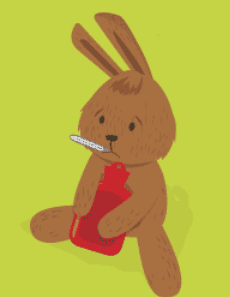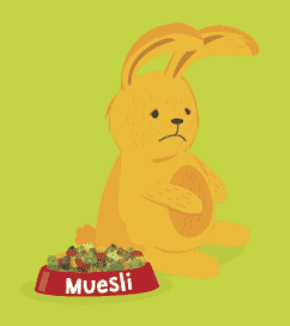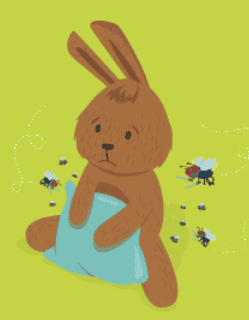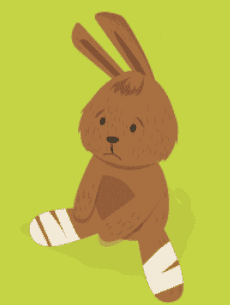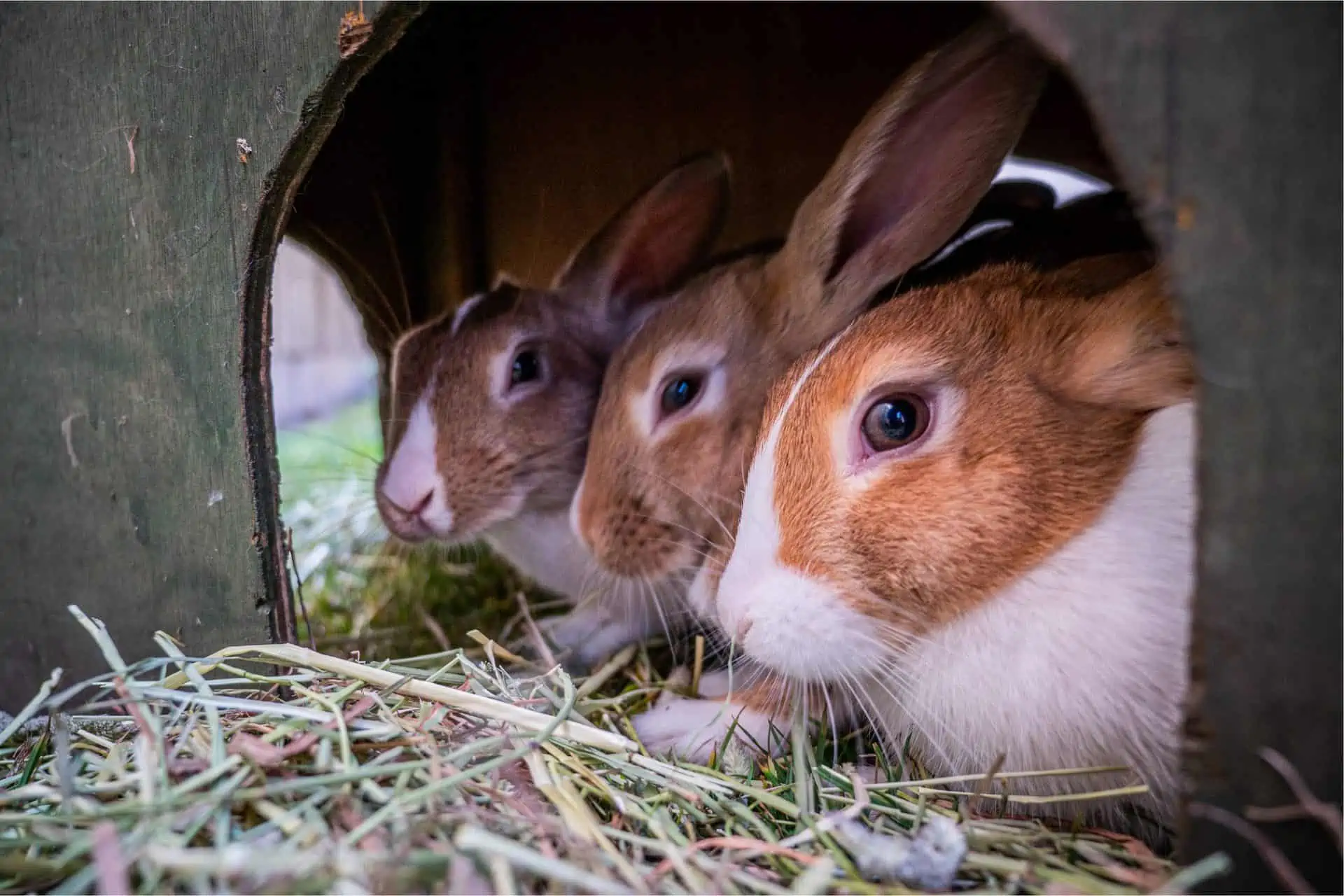Keeping your rabbits fit and healthy
You should check that your rabbits are eating correctly and passing droppings every day. Take your rabbits for a veterinary check-up at least once a year. Rabbits are prey animals so will hide signs of ill-health. This is why regular vet visits are really important to help avoid illness.
Many of the common problems seen in rabbits may develop from rabbits being fed an inappropriate diet. It is extremely important that you make sure your rabbit is fed correctly to help avoid health problems. Take a look at the Excel Feeding Plan for more information on the best food for your rabbits.
Common health problems
Rabbit health check
Being prey animals rabbits are good at hiding signs of weakness and ill-health. Therefore, it is important to get into the habit of completing some simple health checks on your rabbits weekly. Not only will this help you spot any potential problems early on, regular handling will help strengthen your bond. When checking your rabbit ensure that they are relaxed and willing to be handled.
Try to avoid washing your rabbits with water as the water makes them feel vulnerable. If you do need to, be very gentle when you bathe your rabbits. However, groom your rabbits daily if possible, to stop them grooming themselves and potentially swallowing fur. This daily grooming will also help get them used to being handled.
Here are some quick checks while grooming you can do at home:
Ears: Check that they are free from mites and fleas.
Eyes: Check that they are clear, shiny, not swollen and free from discharge. Damp, dull or swollen eyes can be symptoms of illness which may lead to blindness.
Teeth: Check their mouths to ensure that there is no excessive drooling. Just be careful! If they’re not comfortable with their mouths being examined, rabbits can bite.
Bottom: Make sure that it is clean, this is especially important in warm weather to prevent the risk of fly strike. Any sticky droppings should be washed off gently and the area dried thoroughly.
Feet: Check for any injuries and ensure that their nails aren’t over grown. If they need trimming seek veterinary advice.
Fur: Check that there are no bald patches and no signs of fleas, mites or injuries. Rabbits’ skin is very delicate and therefore you should use soft, delicate brushes, designed especially for rabbits.
Nails: Check your rabbits’ nails on a weekly basis and seek veterinary advice if they need trimming.
As well as completing regular checks at home, take your rabbits for a full veterinary check up at least once a year. If your rabbit’s behaviour or eating/drinking pattern changes you should seek the advice of a vet as soon as possible.
Quick tip
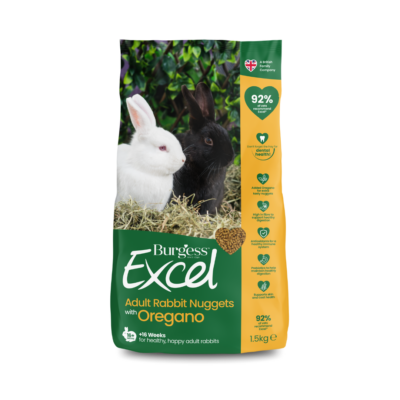
Excel Adult Rabbit Nuggets with Oregano

Neutering your Rabbits
FEMALES:
You should neuter your rabbits to avoid unwanted litters. Up to 80% of un-neutered female rabbits can develop cancer of the uterus by the age of 5. Neutering your female rabbit at an early age will stop these cancers from developing.
MALES:
Un-neutered males can be aggressive to other rabbits, whereas neutered rabbits can live happily with male and female rabbits. A neutered female and a neutered male are usually the most successful pairing.
Our Burgess Excel Range








Do you need more advice?
To help you find the right food for your rabbits have a look at our product range.
You can get in touch with our customer care team who will respond in 3-5 working days. Our dedicated team of pet experts will help you make the right choice.
If you should have any concerns about the health of your rabbits, always consult a vet.


